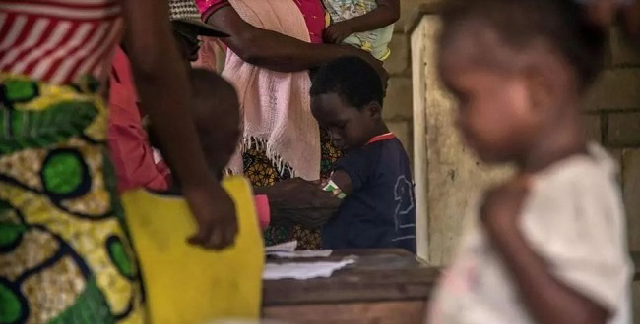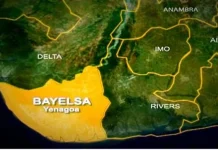In a recent report by the United Nations (UN), the long-drawn conflicts in Northeastern Nigeria has claimed the lives of 324,000 children under five, with many dying of hunger and diseases.
The revelation was made in a report titled, ‘Assessing the impact of conflict on development in northeast Nigeria,’ shared on Thursday.
It noted that the dominant influence of jihadist group Boko Haram has continued to fuel insecurity across the northeastern part of the country since establishing its presence in 2009.
The report added that “the full human cost of war is much greater,” with more than two million people displaced from their places of residence.
“We estimate that more than 90 percent of conflict-attributable deaths through 2020, about 324,000, are of children younger than five,” the report said.
An estimated 314,000 of the almost 350,000 children were said to have died from indirect causes.
Persistent Conflict
As insecurity persists, trade and production in agriculture – the dominant sector in the region – have been affected, cutting access to food and disrupting the livelihoods of residents.
Other attendant issues include lack of access to healthcare services, clean water, food, and shelter, exposing children to more vulnerabilities.
The UN estimated that “With another decade of conflict, that could grow to more than 1.1 million.”
In 2020, the United Nations International Children’s Emergency Fund (UNICEF) said that there were 1.9 million displaced Nigerians from the Northeast, with sixty percent of them being children.
UNICEF’s Representative in Nigeria, Peter Hawkins, said, “Hundreds of thousands of children in north-east Nigeria are living in the shadow of conflict – and now in the increasingly challenging shadow of a global pandemic and its potential socio-economic aftermath.”
Spread of Violence
Extremist groups have continued to spread their violent streaks beyond the borders of Nigeria to countries like Chad, Cameroon, and Niger.
The UN says that in the Lake Chad area “over 3.2 million individuals are displaced, with 5.3 million food-insecure people at crisis and emergency levels.”
However, a grimmer situation plays out in the northeastern states of Adamawa, Borno, and Yobe.
The report said, “over 3.2 million individuals are displaced, with 5.3 million food-insecure people at crisis and emergency levels.”
READ ALSO: Buhari Urges NASRDA To Use Satellite Facilities To Solve Issues
Buhari’s Commitment
Nigeria’s President Muhammadu Buhari has continued to restate his administration’s commitment to bringing an end to the 12-year intractable violence.
Billions of dollars have been deployed to the effort in the fight against insecurity, with Nigeria acquiring fighter jets and other military equipment to tackle insecurity.
Yet, these efforts seem to be impotent in the face of continued destruction and loss of lives and properties.
Factions continue to sprout, presenting existential threats to residents, especially in the northern part of the country, with the northeast remaining a flashpoint.
Senator Smart Adeyemi, representing the Kogi West constituency, said that “We are facing the worst instability in the history of our nation,” describing it as “worse than the civil war” that took placed between 1967 and 1970.
On the effort of the incumbent administration in the fight against insecurity, an analyst at the Tony Blair Institute for Global Change, Bulama Bukarti, said that “Political pressure is mounting on President Buhari as his government claims it is doing its best and succeeding – but the reality does not show it.”
A rights watchdog, Global Rights Nigeria, in May 2021, said that 1,603 Nigerians had died in the first quarter of 2021as a result of violent incidents across the country.
The report titled, ‘Violent Incidents Report: January 2021’ stated, “In the first quarter of 2021, Nigeria continued to experience inordinately high incidents of armed violence across the country, with very high body counts. Our tracking shows that at least 1603 persons lost their lives to mass atrocities across the country from January to March 2021.
“In January, unbridled violence continued to be documented across all regions of Nigeria, with at least 373 deaths linked to these incidents. Abductions nationwide, and pillage attacks in the North featured most prominently.”












